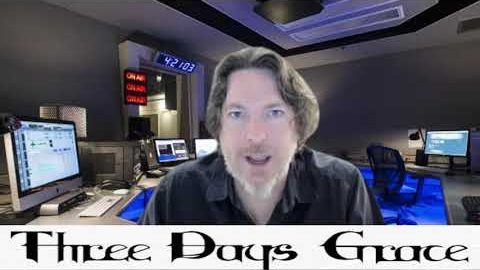
Given recent headlines, you’d think that the only thing sadder than an $8 blue tick was an old band making new music. “It’d be total cringe if we did that,” Stephen Malkmus told NME about his thoughts on new Pavement music following their celebrated reunion shows. “No way.”
The Grand Vizier of Cult Cool has spoken, and that sound you hear? It’s Pulp ripping up any proposed studio schedule. Engage with the internet’s mortal enemy – nuance – however, and Malkmus was being rather more magnanimous than it first appeared. He understands that a reunion band making a new album often adds creative weight and legitimacy to the project. “It makes it seem like the band’s more legit or something, and not just like a cash-in deal,” he added. “But it doesn’t have to be that way if you just own your songs. And people can [then] see if you’re geezers on a cash-in reunion tour, or if they’re doing it because they’re having a blast.”
Having a rave-up on the road might naturally spill over into the studio of course, but Pavement’s reformation, Malkmus explained, was always intended to be an exercise in “pure nostalgia”. “That’s just me,” he continued, while adding the diplomatic caveat that “anyone can do what they want. It’s your life, choose your adventure. If any band wants to make a new album, they like to do that, that’s totally rad.”
Reunion albums, then: cringe or rad? Are we with Kim Deal in believing that iconic bands shouldn’t risk damaging their legacy and leave their legend intact? Or are we with, well, The Smashing Pumpkins? Personally, I’m a big fan of the reunion album. Some of the finest records of recent years have been the work of second-time-rounders: Pixies’ ‘Beneath The Eyrie’, Suede’s ‘The Blue Hour’, Bright Eyes’ ‘Down In The Weeds, Where The World Once Was’. And if the new stuff doesn’t strike you as being true to earlier eras or as exciting as when you first discovered them, it’s probably more you than them.
Sure, some of your favourite artists are no longer the visceral young punks with an entire adolescence of unreleased material stacked up; ambition and opportunity electrifying every chord as they continue to ride the good bit of impending narcotic addiction. Instead, they’ve been through divorces and rehabs, gone country on a dozen solo albums you never listened to and lost all their enthusiasm for life and music when their accountant ran off with all the money they’d made, and Spotify ran off with all the money they hadn’t made yet. But they’re still making the music that that particular arrangement of musicians would be making right now, and those formative first-era albums you love are still there: no-one’s going back to screw around with them, or re-record them with a Philharmonic orchestra (unless they’ve suddenly got Jeff Lynne in on ‘vibes’).
You, in the meantime, got about a decade older. You split up with whoever introduced you to the band in the first place, became mired in crippling payday loans, survived several debilitating STIs, decided that socialism is “unelectable”, turned into a minor-level Twitter troll and – having lost your grip on the zeitgeist in the gushing torrent of music streaming – reluctantly got into Olivia Rodrigo because she’s all your kids listen to. Any hope that a new record by your old favourite band will give you the same rush that they did when you were young, skinny and defined by music long since went the way of your optimal liver function.

The “cringe” element that Malkmus speaks of is exactly that: a fruitless desire to recreate some bygone youth and energy in both band and fan. But reunion albums don’t have to be so cynical: the trick is not to try to be the cultural typhoon you were, but accept whatever the hell you are now. If you’ve spent the intervening decades turning your back on Britpop to make post-psych methadone jazz with an avatar band, incorporate that rather than trying to make the half-decent second album everyone wishes you’d made in 1995. Blur’s ‘The Magic Whip’ is a prime example of the form: the sort of skewed, oddball, brilliant comeback record that could only have been made by a band that had spent the 12 intervening years following very different solo interests (one pan-cultural visionary, one alt-rock guitar godhead, one political activist and one sidekick of Betty Boo).
Make music with honesty, without any pretence of youth and relevance or a yearning for the past, and most of us will happily embrace it. Even if it sucks as bad as a Tory reshuffle, we’ll welcome it, right down to the odd new stinker you drop into the live set. Because, ultimately, reunion albums are all about allowing bands to continue touring without slipping into the dank realm of stagnant nostalgia, with its diminishing returns and shared dressing rooms with T’Pau. And what we want most from reunion bands is for them to be able to keep touring.
Pixies, as with most things, have mastered the art. Their post-reunion albums are great, but they’re been sparing with their live deployment. They know that their artistic fulfilment goes hand in hand with giving the ticket-holder – primarily – what they want, i.e. plenty of sinister alien rock and Biblical incest, delivered thirty per cent in Spanish. Hence their reunion has become an accomplished second era in its own right, while their seminal period remains entirely unblemished. So come on Pavement, think again. Maybe there’s rad new streets to roam down yet.
The post “It’d be total cringe if we did that” – is Pavement’s Stephen Malkmus right about reunion albums? appeared first on NME.










